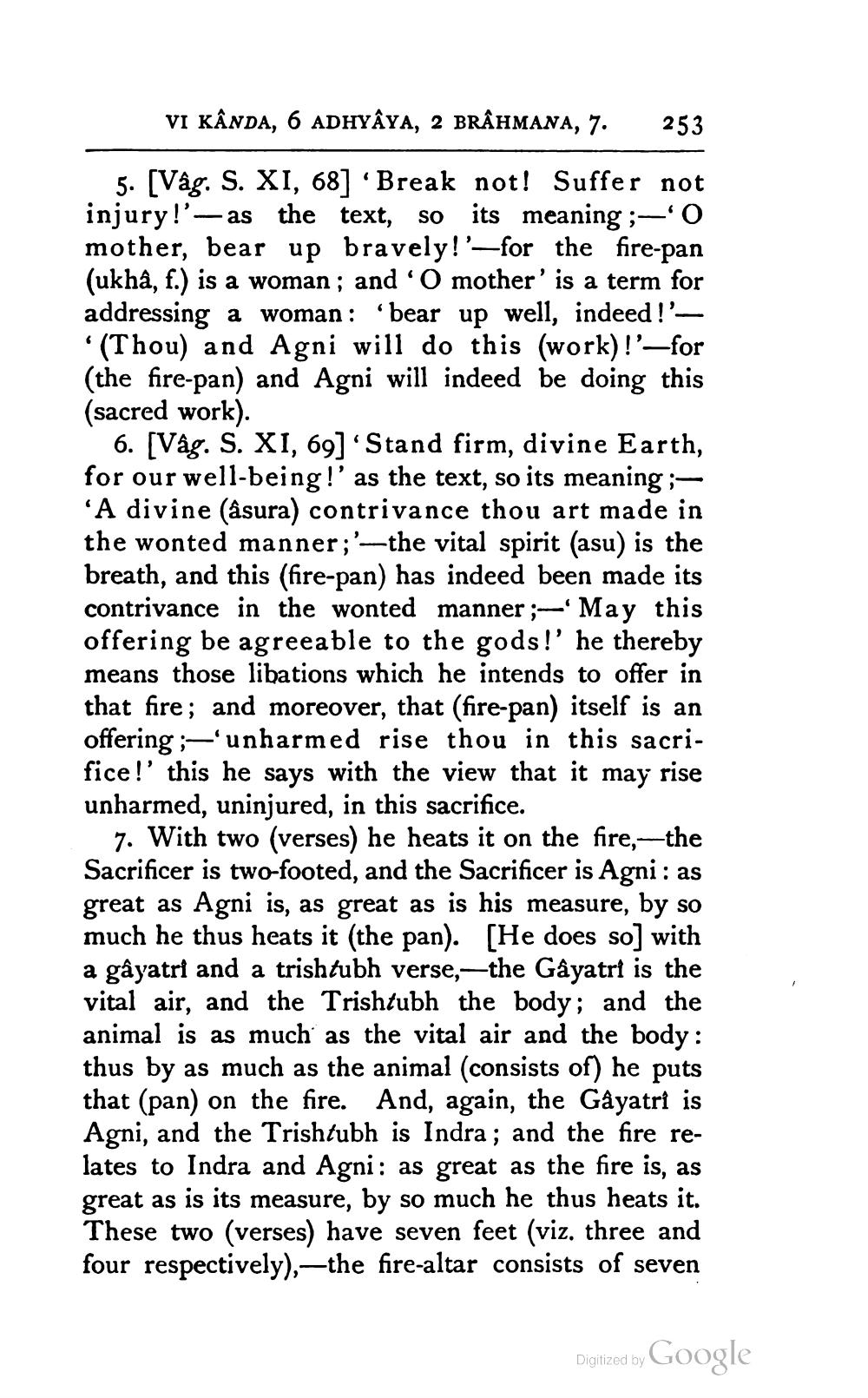________________
VI KANDA, 6 ADHYAYA, 2 BRAHMANA, 7. 253
5. [Vâg. S. XI, 68] 'Break not! Suffer not injury!'- - as the text, so its meaning;-'0 mother, bear up bravely!'-for the fire-pan (ukhâ, f.) is a woman; and 'O mother' is a term for addressing a woman: 'bear up well, indeed!'— '(Thou) and Agni will do this (work)!'-for (the fire-pan) and Agni will indeed be doing this (sacred work).
6. [Vâg. S. XI, 69] 'Stand firm, divine Earth, for our well-being!' as the text, so its meaning;'A divine (âsura) contrivance thou art made in the wonted manner;'-the vital spirit (asu) is the breath, and this (fire-pan) has indeed been made its contrivance in the wonted manner;- May this offering be agreeable to the gods!' he thereby means those libations which he intends to offer in that fire; and moreover, that (fire-pan) itself is an offering;'unharmed rise thou in this sacrifice!' this he says with the view that it may rise unharmed, uninjured, in this sacrifice.
7. With two (verses) he heats it on the fire,-the Sacrificer is two-footed, and the Sacrificer is Agni: as great as Agni is, as great as is his measure, by so much he thus heats it (the pan). [He does so] with a gâyatri and a trishtubh verse, the Gâyatri is the vital air, and the Trishtubh the body; and the animal is as much as the vital air and the body: thus by as much as the animal (consists of) he puts that (pan) on the fire. And, again, the Gâyatrî is Agni, and the Trishtubh is Indra; and the fire relates to Indra and Agni: as great as the fire is, as great as is its measure, by so much he thus heats it. These two (verses) have seven feet (viz. three and four respectively),—the fire-altar consists of seven
Digitized by
Google




